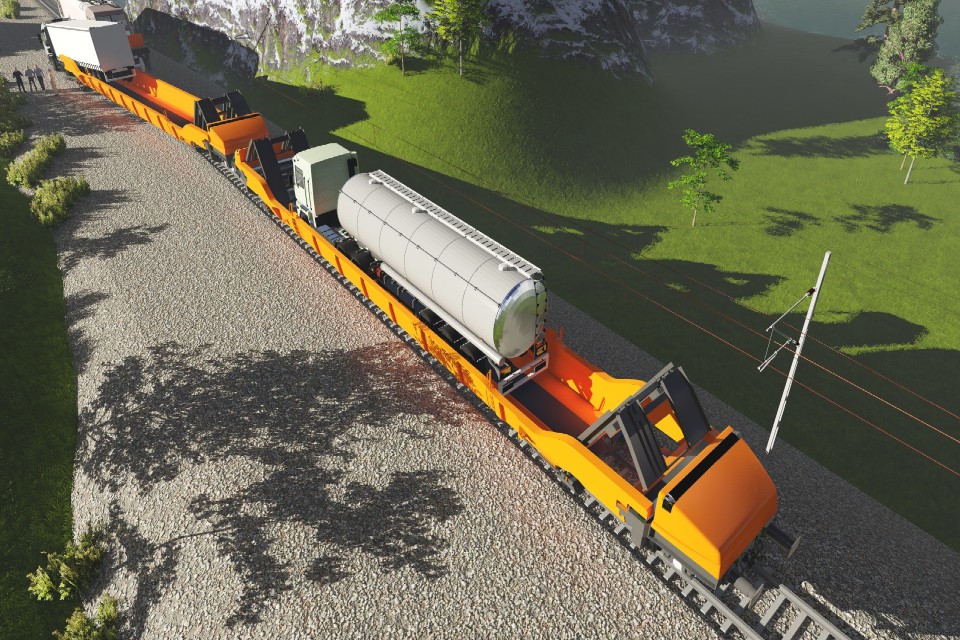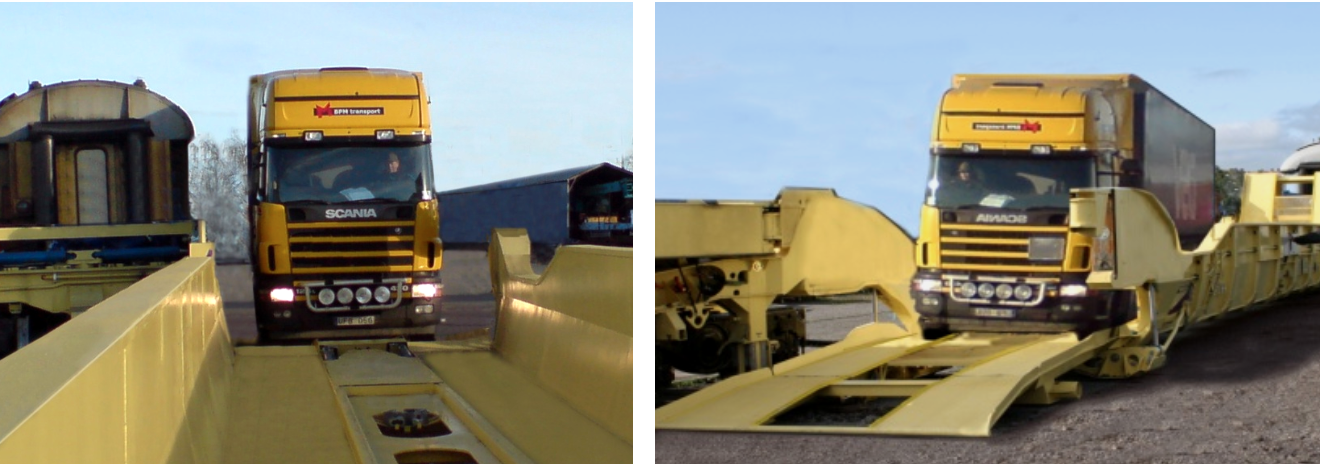Flexiwaggon: Could the mobile truckstop change intermodal transport? 27/11/20
< Retour à la liste
Could the mobile truckstop change intermodal transport?
Flexiwaggon’s fully automatic railway carriage aims to bring innovation in intermodal transportation, with the ability to carry full trucks or other vehicles on the rails. With its modern design and features, the company’s project claims that it reduces loading times and costs. At the same time, it constitutes a sustainable solution which is not limited to the characteristics of terminals for its operation.
The Mobile Truckstop, as the project is named, is a product developed in Sweden with the ability to operate on European rail tracks too. Its creators contend that in comparison with similar existing services, this one has more benefits for the rail freight market. The product will be available in summer of 2021, and what remains is to see whether it will live up to the expectations.
Text continues below the image

Characteristics
According to Jan Eriksson, Managing Director at Flexiwaggon, three characteristics differentiate this new railway carriage from the rest. First of all, the transhipment time of cargo can take up to seven minutes, a quite competitive time. Secondly, the semitrailer wagons can generate electricity through braking. This means that there is the possibility to supply electric vehicles or power refrigerator units with energy during the trip. Finally, the wagons need no terminal to operate during the loading/unloading process. Given that the ground is suitable for trucks to drive in or out of the wagon, the process can take place everywhere.
Another interesting feature of the carriages is that they don’t only load semitrailers. In contrast, they can load full trucks or even buses which can later get unloaded without the need for extra equipment. Drivers do not have to travel on the train since trucks can be loaded and then operated by other drivers after they reach their final destination. This trait, together with the energy supply provided during the trip, can contribute to reducing transport costs considerably.
Additionally, the flexibility provided during transhipment can contribute to resolving issues that occur with terminal equipment compatibility. If what Flexiwaggon claims to bring in the market is true, then intermodal transportation could change to a great degree. Last but not least, transhipment times could bring improvements in other issues such as congestion in border crossings and fully loaded routes.
Text continues below the image

Competition
Of course, Flexiwagon is not the only company providing such intermodal transport solutions. There are other firms already in the market that offer very competitive, quick and sustainable services. RoLa, Modalohr, Cargobeamer, cargo speed and Megaswing are some examples.
As a result, one can never be sure about how innovative a project is until tested and proven its potential. Nevertheless, it is intriguing to see developments taking place in the market that could make rail transportation more competitive and environmentally friendly. Consequently, the rail sector will have something to look forward to in the summer of 2021, the expected period of the project’s launching.





